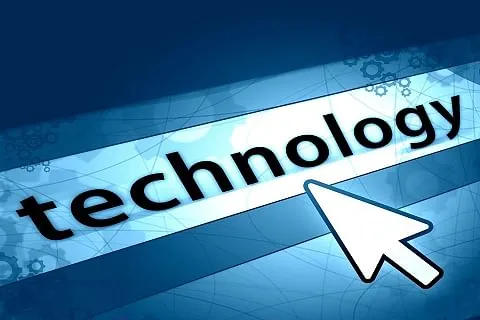Sumaira Farooq
In the contemporary era, technology has permeated every aspect of our lives, redefining the way we communicate, work, entertain ourselves, and navigate the world. Its ubiquitous presence has brought about a paradigm shift, shaping societies and cultures in unprecedented ways. From the moment we wake up until we retire to bed, technology surrounds us, enhancing our efficiency, connectivity, and overall human experience.
The influence of technology knows no boundaries and affects individuals from all walks of life. From young children to older adults, people of different ages, backgrounds, and professions find themselves intertwined with technology. For instance, consider the impact of smartphones on daily life. They have become an essential tool for communication, entertainment, and accessing information, catering to a wide range of users across demographics.
Communication lies at the heart of human interactions, and technology has revolutionized the way we connect with one another. Gone are the days of snail mail and landline telephones, as digital communication channels have taken center stage. Instant messaging platforms, social media networks, and video conferencing tools have not only bridged geographical distances but have also fostered new forms of expression and connectivity. We can now effortlessly communicate with individuals from diverse backgrounds and cultures, transcending borders and time zones.
Technology has irrevocably altered the world of work, leading to increased productivity and efficiency. With the advent of computers, the internet, and cloud-based platforms, the traditional office setting has expanded beyond physical boundaries. Remote work has become a viable option for many, enabling flexibility and work-life balance. Collaboration tools and project management software facilitate seamless teamwork and coordination across geographically dispersed teams. Automation and artificial intelligence have also streamlined repetitive tasks, allowing professionals to focus on complex problem-solving and creative endeavors.
The education sector has been significantly impacted by technology, transforming the way knowledge is acquired and disseminated. Digital learning platforms and Massive Open Online Courses (MOOCs) have democratized education, making learning accessible to individuals across the globe. Interactive e-books, virtual reality simulations, and online discussion forums have enriched the learning experience, engaging students in dynamic and immersive ways. Furthermore, technology has facilitated personalized learning paths, catering to the unique needs and learning styles of each student.
Technology has revolutionized the entertainment industry, providing a myriad of options for leisure and relaxation. Streaming services, online gaming, and virtual reality experiences have transformed how we consume media and engage with entertainment content. With a few clicks, we can access a vast library of movies, TV shows, and music from the comfort of our own homes. Social media platforms and online communities have also redefined the way we engage with celebrities, artists, and fellow enthusiasts, creating a participatory and interactive entertainment landscape.
As technology continues to evolve at an exponential pace, its presence will only become more pervasive in our lives. Emerging technologies such as artificial intelligence, block chain, and the Internet of Things (IoT) hold the promise of transforming industries and unlocking new possibilities. Smart homes, autonomous vehicles, and wearable devices are just glimpses of the future that technology holds. However, it is crucial to strike a balance between technological advancements and ethical considerations, ensuring that technology remains a tool for progress and empowerment.
In a world saturated with technology, its pervasive presence has reshaped how we communicate, work, learn, and entertain ourselves. The boundaries between physical and virtual realms are becoming increasingly blurred, enabling unprecedented connectivity and opportunities. Technology has undoubtedly enhanced our lives, but it is essential to approach its integration thoughtfully, addressing concerns such as privacy, cybersecurity, and the digital divide. As we navigate this ever-evolving landscape, harnessing the potential of technology while upholding our values and ethical principles will be key to shaping a future that benefits all of humanity.
Sumaira Farooq, Lecturer Govt Boys College, Anantnag.






